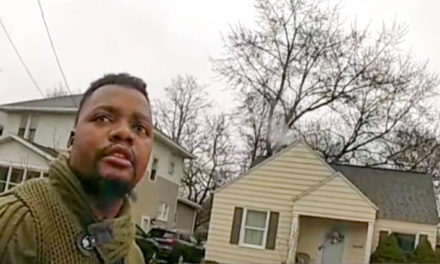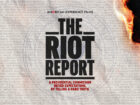Teaching has always been a challenging job, but burnout, illness, early retirement, and COVID-19 quarantining have pushed present and future educators away from the profession. Left with fewer educators on deck, districts are forced to place uncertified substitutes in classrooms, expand class sizes or return to remote learning.
State funding could help dig teaching out of its current rut, however. State Superintendent Michael Rice recently outlined a plan to infuse $300-500 million to fund higher paying salaries, help with recruitment, and forgive student loan debt for future educators over the next five years.
As teachers grapple with some of the most challenging years of their career, providing for children’s academic, social and emotional needs, One Detroit’s Christy McDonald talks with two local teachers to get educated on the challenges they continue to face.
Full transcript:
Meghan Moxon, 3rd Grade Teacher, Hiller Elementary: I think that comparing from last year to this year, the students and staff were incredibly happy to have what kind of is structured more as a traditional school year as prior to the year we had. I know my students were incredibly happy to be back with their friends. And it’s really interesting because I-I teach third grade, so these kids haven’t had an uninterrupted school year since they were in kindergarten, and that itself-really socially and developmentally-you see it in the room. There are moments where I-I realize I have to re-teach something, because maybe we don’t remember the proper way to sit on the carpet and transition to the next thing when maybe students in the past did. And that’s just because we haven’t had that practice.
Dorothea Williams-Arnold, ELA Teacher, Cass Tech HS: I agree with you, Meghan. The kids are excited to be back. You know, our kids haven’t been, some of our—I teach 10th and 11th grade, and some of my students have never been in a high school. So my 10th graders are a little nervous, but excited. But we’re in a couple of cohorts where—I’m at a school where we have a lot of, probably about 2500 students. So I’m having to teach my kids in the classroom and engage the students who are at home as well. So I’m faced with similar challenges as I had last year, right? So I’m kind of like ‘alright everybody’ you know? And then I’m like ‘how are you guys doing over here?’ Anyway, so I’m going back and forth. So in terms of preparing, yeah, I have to figure out how to—group work is more difficult. So the preparation time takes a lot longer and often there is not enough time in the day, I’m going to be honest. And we’ve taken on a lot of different, more responsibilities.
Christy McDonald, One Detroit, DPTV: Meghan, you—I can only imagine yours is a very different kind of preparation, but it has to be different. So, tell us about that.
Meghan Moxon: Yeah, I think that probably Dorothea can agree. We’re working in this moment where there’s a lot of focus on social, emotional learning. We all just went through a collective trauma together and are still going through that. At the same time, the demand of meeting benchmark standards and these metrics are incredibly challenging considering all of the variety of situations that our students went through in these last two years. We all learned in this pandemic, just in a different way. So that in itself, using the assessments that we used, you—you see the challenge of looking at any data that got collected in the last year through the remote setting. You know, was it effective data? Am I catching them? So the first quarter was a lot of focusing on where are my students really at? Like I said, developmentally, socially, and academically. And now the second quarter is really gonna be focused in on how can I now take all this information that I have? And kind of going back to what Dorothea said, the preparation of which do I need to lean in more? Am I leaning more into social, emotional learning? Am I leaning more into all of the academics? It feels like there is not all the time in the world to do it all in that it’s a three-time span.
Dorothea Williams-Arnold: Our district allowed us a couple of weeks to—not just lean in on the academic piece, right? They wanted us to kind of get to know the kids, give them a little bit of freedom to kind of relax and get to know each other. And then I kind of began with the assessments and just kind of see where they are. The district is also doing their own assessments, and we spent quite a bit of time in that area. I just wanted to talk a little bit about that. But still, I don’t know if my assessments are matching up with the districts in terms of where their students are right now.
Christy McDonald: I want to go back to what kind of supports are you both seeing at the district level to be able to handle that? Because I feel as teachers, not only are you working with those benchmarks, you do have to work individually with each child. And Meghan, you’ve got twenty-three, Dorothea, you’ve got two hundred that are coming in and out of class all day long. And they each have an individual story about why they may not be able to achieve a certain thing. And it has played out over this last year and a half.
Meghan Moxon: During the remote learning side, we added a social, emotional curriculum that we taught while being remote. So we were trying to address that while we were in it so that we didn’t wait till we got back, which was great. We also have an additional social worker that’s come into all of our classrooms and does additional work. Right now, my third graders are working on identifying emotions and that is technically kind of viewed as a younger lesson, but they are gaining so much from it because, I mean, if you think about it, they didn’t necessarily get that in the last two years. There’s so much that we went through. When it comes to teachers. I think a lot of us here self-care quite a bit. And I know that we had a-just like a moment last year where we tried to check in on Fridays and had Feel-Good Fridays, and we’d get these little emails that would just kind of brighten your day a little bit. We’re connecting more as a staff this year, which we really did not get to do as much last year.
Dorothea Williams-Arnold: We haven’t had any professional developments at my school about safe care, but our principal has definitely let us know that she is supportive and she is, I mean. And the district has begun to build on that community school model, this kind of progressive community school model, and that they are providing mental health services for our students in the school. That’s encouraging, right? And for teachers as well. I feel that the school and the district understand that we’re under a tremendous pressure. Doesn’t always alleviate it, but I feel that they are acknowledging that we-we need self-care, and we need to allow the students room to kind of breathe a little bit.
Christy McDonald: So let’s talk about that acknowledgment of the teaching profession right now. I want to get both of your opinions on and maybe what you’ve talked to colleagues about, about teaching in general and how people now perceive teachers, what their role is. And are more people thinking about, ‘I’m in here for the long haul,’ or do you hear more teachers saying, ‘you know what? A couple more years and I’m done,’ or ‘this is too much for me.’ How have you seen the role of teaching change and how do you-how do you feel about it?
Meghan Moxon: I am actually a member of my union, and this is a conversation we’ve been having because we do see and it’s not just our district, it’s really all at this time, where you see many people, maybe, seeing openings in different districts, trying out different things. People leaving the profession entirely. I think the pandemic showed us that the K-12 structure is incredibly important to all working families. It’s incredibly important to just, I mean, our whole systems in our country. And so, we really need to make sure that this profession does not get lost, and stop placing blame, and all of those things that on top of working through a pandemic, teachers feel. So this is a very complex situation and it doesn’t mean if someone leaves the profession that they didn’t have the heart or they didn’t have what it takes, that they don’t care about kids. I mean, that is absolutely not true. I mean, I’ve seen many of my friends choose to not be in this profession anymore. I’ve seen many of my friends choose to try out different districts.
Dorothea Williams-Arnold: You know, I hear a lot of the same things from my colleagues, you know, who are eligible for retirement in a few years, and it’s disappointing. But I-I understand. I’m a die hard, but I’m even at the point now where I’m exhausted. You know, I am-I am. I love the kids. We have great students at Cass. We have great students all over the district, right? But and I can’t be-Meghan, I’m with you. I can’t be mad when teachers say, ‘you know what? I’m done,’ right? We need more support staff. It’s a tremendous challenge to try and teach two separate classes. You have all of these kids and there might be a way to solve this problem or to help out by making it a little bit easier for teachers to get through their programs, offering some financial incentives for teachers to make it a little bit easier for them. We have student teachers from Michigan State University who are struggling to get through their programs because they have to go a whole year with no pay, right? How can the districts help with that?
Meghan Moxon: We know that education is the most crucial way to help promote a life for the kids that we have in our rooms. And so, when we give it all our all every day, you know, we would appreciate that acknowledgment, really. And that’s kind of it. I mean, I care deeply about my own job. I care deeply about my staff, my students, always will. And I think that, you know, it just talks about the resilience of a teacher. We go through a lot and you may not know it.








